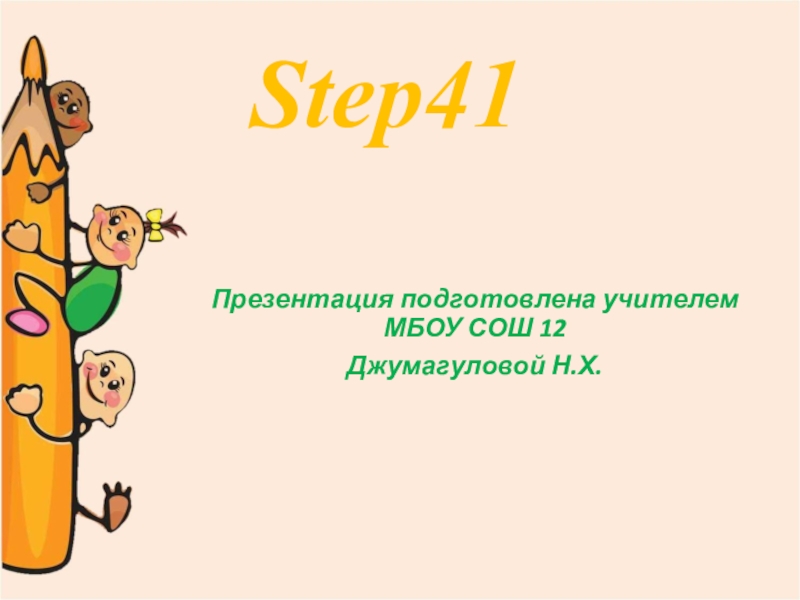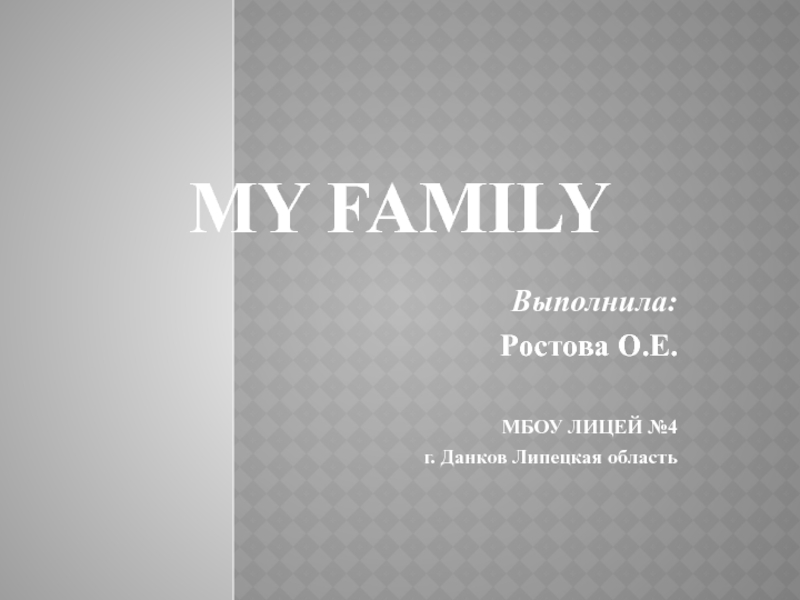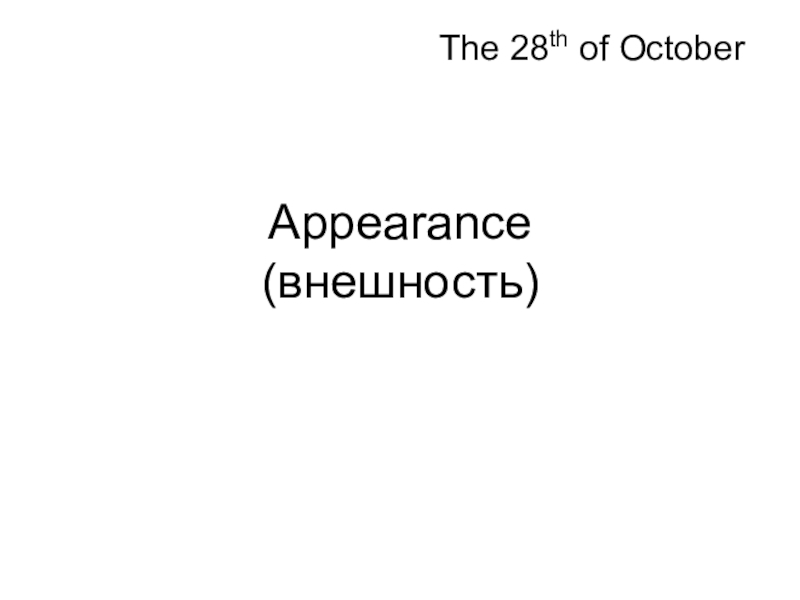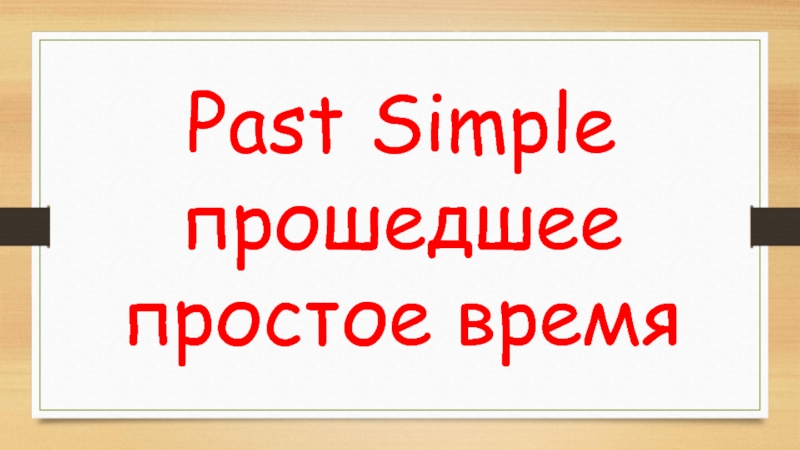- Главная
- Разное
- Образование
- Спорт
- Естествознание
- Природоведение
- Религиоведение
- Французский язык
- Черчение
- Английский язык
- Астрономия
- Алгебра
- Биология
- География
- Геометрия
- Детские презентации
- Информатика
- История
- Литература
- Математика
- Музыка
- МХК
- Немецкий язык
- ОБЖ
- Обществознание
- Окружающий мир
- Педагогика
- Русский язык
- Технология
- Физика
- Философия
- Химия
- Шаблоны, фоны, картинки для презентаций
- Экология
- Экономика
Презентация, доклад по английскому языку на тему Passive (future)
Содержание
- 1. Презентация по английскому языку на тему Passive (future)
- 2. The Passive Voice:to be + Participle II
- 3. Future simple passive - positivepassive subject /
- 4. Furure simple passive - negativepassive subject /will
- 5. Future perfect passive - positivepassive subject /will/
- 6. Future perfect passive - negativepassive subject /will
- 7. Future perfect passive - questionswill / passive
- 8. Future tensesshall/will be given-shall/will have been given-
- 9. Mary will help John. - Мэри поможет
- 10. Отрицательная и вопросительная формы образуются по тем
- 11. При сложной форме вспомогательного глагола частица not
- 12. В вопросительной форме вспомогательный глагол (в сложной
- 13. Если в страдательной конструкции указывается исполнитель действия,
- 14. Если в конструкции указывается объект или материал,
- 15. to be going to do sthAffirmative FormObject
- 16. to be going to do sthQuestion FormAm
- 17. to be going to do sthSomething is
- 18. Put the following sentences into passive voice.
- 19. Put the following sentences into passive voice.
- 20. Put the following sentences into passive voice.
- 21. Put the following sentences into passive voice.
- 22. Put the following sentences into passive voice. (will future passive)Who is going to pay the bill?
- 23. Have sth done1. Are you going to
The Passive Voice:to be + Participle II
Слайд 3Future simple passive - positive
passive subject / will / 'to be'/
past participle
The bridge will be opened in 2018.
The bridge will be opened in 2018.
Слайд 4
Furure simple passive - negative
passive subject /will not / 'to be'/
past participle
The bridge will not be opened in 2018.
The bridge will not be opened in 2018.
Слайд 5Future perfect passive - positive
passive subject /will/ have been/ past participle
The
house will have been painted this year.
The children will have been given their medicine.
The children will have been given their medicine.
Слайд 6Future perfect passive - negative
passive subject /will / haven’t been /past
participle
The house will haven't been painted this year.
The children will haven't been given their medicine.
The house will haven't been painted this year.
The children will haven't been given their medicine.
Слайд 7Future perfect passive - questions
will / passive subject /have been /past
participle
Will the house have been painted this year ?
Will the children have been given their medicine ?
Will the house have been painted this year ?
Will the children have been given their medicine ?
Слайд 9Mary will help John. - Мэри поможет Джону.
John will be helped
by Mary. - Джону поможет Мэри.
Mary will have helped John. - Мэри поможет Джону.
John will have been helped by Mary. - Джону поможет Мэри.
Mary will have helped John. - Мэри поможет Джону.
John will have been helped by Mary. - Джону поможет Мэри.
Слайд 10Отрицательная и вопросительная формы образуются по тем же правилам, что и
формы действительного залога:
в отрицательной форме частица подставится после вспомогательного глагола:
John isn't helped by Mary. - Джону Мэри не помогает.
в отрицательной форме частица подставится после вспомогательного глагола:
John isn't helped by Mary. - Джону Мэри не помогает.
Слайд 11При сложной форме вспомогательного глагола частица not ставится после первого вспомогательного
глагола:
John hasn't been helped by Mary. - Джону Мэри не помогла.
John hasn't been helped by Mary. - Джону Мэри не помогла.
Слайд 12В вопросительной форме вспомогательный глагол (в сложной форме первый по счету)
обычно ставится перед подлежащим:
Is John helped by Mary? - Джону Мэри помогает?
Has John been helped by Mary? - Джону Мэри помогла?
Is John helped by Mary? - Джону Мэри помогает?
Has John been helped by Mary? - Джону Мэри помогла?
Слайд 13Если в страдательной конструкции указывается исполнитель действия, выраженный одушевленным существительным или
местоимением, ему предшествует предлог by:
The book was written by O.Wilde. - Книга была написана О.Уайльдом
The book was written by O.Wilde. - Книга была написана О.Уайльдом
Слайд 14Если в конструкции указывается объект или материал, при помощи которого совершено
действие, употребляется предлог with:
The room was filled with smoke. - Комната была полна дыма.
The finger was cut with a knife. - Палец порезали ножом.
The room was filled with smoke. - Комната была полна дыма.
The finger was cut with a knife. - Палец порезали ножом.
Слайд 15to be going to do sth
Affirmative Form
Object + am / is
/ are + going to + be + verb3 (past participle)
Слайд 16to be going to do sth
Question Form
Am / is / are
+ object + going to + be + verb3 (past participle)
Слайд 17to be going to do sth
Something is going to be done
by someone in the future. (Planned)
Active : Is anybody going to invite me?
Passive: Am I going to be invited by anybody?
Active : I am going to pay his debts.
Passive: His debts are going to be paid by me.
Active : The police are going to investigate the case.
Passive: The case is going to be investigated by the police.
Active : Is anybody going to invite me?
Passive: Am I going to be invited by anybody?
Active : I am going to pay his debts.
Passive: His debts are going to be paid by me.
Active : The police are going to investigate the case.
Passive: The case is going to be investigated by the police.
Слайд 18Put the following sentences into passive voice. (will future passive)
Are
they going to feed the cats?
Are the cats going to be fed by them?
Are the cats going to be fed by them?
Слайд 19Put the following sentences into passive voice. (will future passive)
The teacher
is going to give me a second chance.
Слайд 20Put the following sentences into passive voice. (will future passive)
Disneyland is
going to give us a big discount.
Слайд 21Put the following sentences into passive voice. (will future passive)
They are
going to train me for the job.
Слайд 22Put the following sentences into passive voice. (will future passive)
Who is
going to pay the bill?
Слайд 23Have sth done
1. Are you going to -----------------(these shoes/repair) or shall
I throw them away?
2. I haven’t ----------------(my central heating/service) since last autumn.
3. I must -------------(my glasses/mend). They keep falling off.
4. Where do you -------------(your hair/do)? It always looks very nice.
5. I ----------------( four new tyres/fit) on my car last month.
6. I’ve just ---------------(my suit/dry-clean)
2. I haven’t ----------------(my central heating/service) since last autumn.
3. I must -------------(my glasses/mend). They keep falling off.
4. Where do you -------------(your hair/do)? It always looks very nice.
5. I ----------------( four new tyres/fit) on my car last month.
6. I’ve just ---------------(my suit/dry-clean)




























